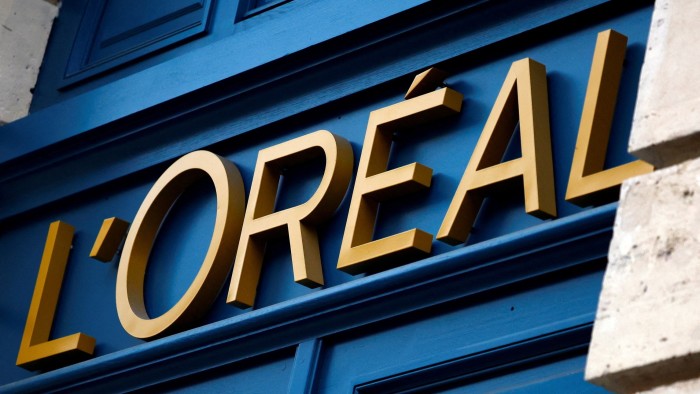Unlock the Editor’s Digest for free
Roula Khalaf, Editor of the FT, selects her favourite stories in this weekly newsletter.
Borrowing costs for a number of French companies have fallen below those of their government, as investors’ worries over the country’s political crisis and growing debt pile upset the typical relationship between sovereign and corporate bonds.
Yields on the bonds of groups including L’Oréal, Airbus and Axa have sunk below those on French government debt of similar maturity in recent weeks, according to data compiled by Goldman Sachs, in a sign that investors may see them as a safer bet.
The moves have come as the resignation of François Bayrou this week as France’s prime minister, the second such resignation in less than a year, deepened investor concern over French bonds and pushed yields above those of Greece and close to Italy’s.
On Friday, Fitch Ratings downgraded France’s credit rating, citing the “increased fragmentation and polarisation of domestic politics”.
“Trading at par with French corporates signals that French government bonds are not a risk-free asset anymore,” said Karsten Junius, chief economist at Swiss private bank J Safra Sarasin. “They are trading more like an emerging market,” where corporate yields trading below the sovereign is more common, he added.

Sovereign borrowing costs typically act as a baseline for yields on corporate bonds. This pattern has occasionally inverted in the Eurozone — where German bonds serve as the true risk-free benchmark and other member states’ trade at an additional “spread” — particularly during the bloc’s debt crisis a decade and a half ago.
But the Goldman Sachs data shows that 10 French companies were recently trading at a negative spread to the French sovereign — which as one of the region’s biggest, wealthiest economies has usually enjoyed relatively low yields — the most in data going back to 2006. Across the euro area as a whole, more than 80 companies had bond yields below France’s, according to Goldman.
Fund managers pointed to a 2033 bond issued by luxury group LVMH, which in 2024 and early 2025 traded with a yield of about 0.2-0.6 percentage points above a comparable sovereign bond, but whose yield has been as much as 0.07 percentage points below this week, its widest gap since being issued two years ago.
Mike Riddell, a fund manager at Fidelity International, said the moves were “even more amazing if you consider that these corporate bonds are far, far less liquid than the sovereigns”, which he argued should equate to about 0.1-0.2 percentage points of spread.

The moves were less a reflection of default probabilities than the glut of government bonds hitting the market, Riddell argued, with governments “still issuing bonds like they’re going out of fashion, while corporates generally aren’t, at least not in public markets”.
The topsy-turvy market also reflects a dramatic rally in global credit that has taken US and European corporate spreads to their tightest against sovereign benchmarks in years. The rally in credit, accompanying a series of record highs in stock indices, reflects an exuberance in markets for riskier assets, which is fuelling fears of a bubble.
“You can rationalise tight corporate credit spreads as long as you want, but ultimately if and when we have another crisis or recession, then corporate credit spreads will widen aggressively,” said Riddell.
While France’s investment-grade corporates are performing well, further down the rating scale French businesses with large debt piles in sectors vulnerable to downturns in consumer spending, such as retail and telecoms, have seen their borrowing spreads widen.
The country’s riskier borrowers — such as retailer Casino as well as Colisee and Cerba, companies owned by private equity firm EQT — are increasingly becoming the targets of hedge funds and looking to scoop up high-yielding debt.
Additional reporting by Euan Healy in London

